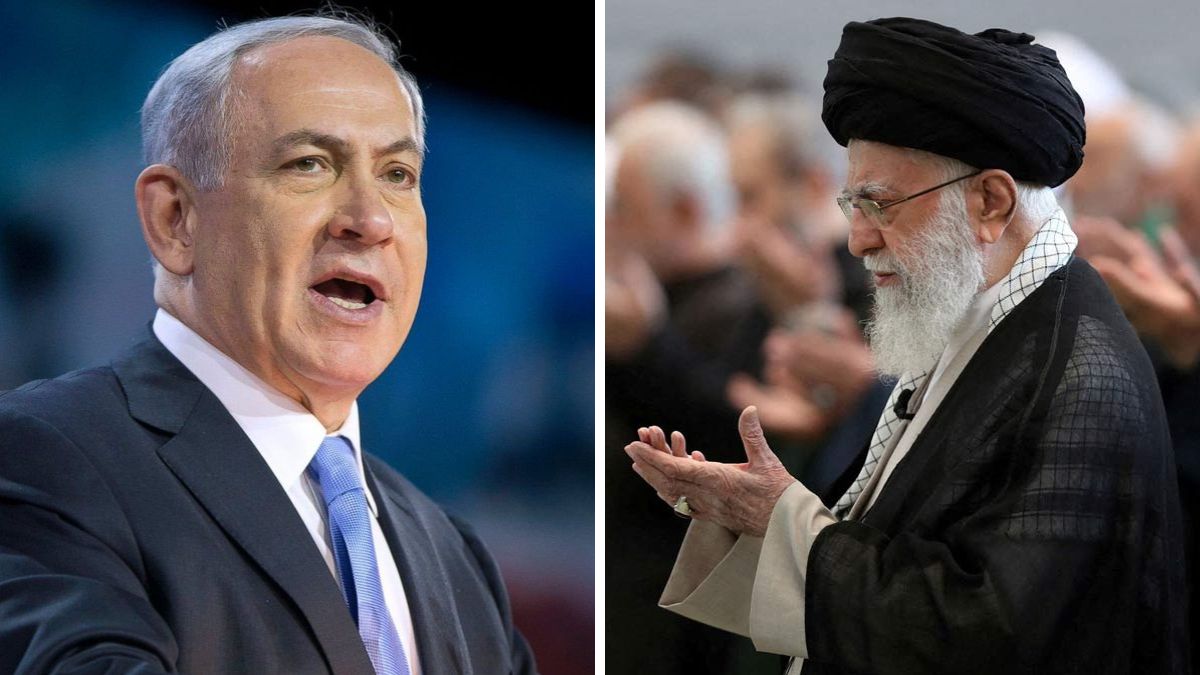Iran-Israel crisis: Complex security situation in Middle East sees India’s balancing act
 Israel Prime Minister Benjamin Netanyahu. (Right) Iran's Supreme Leader Ayathollah Khamenei | X
Israel Prime Minister Benjamin Netanyahu. (Right) Iran's Supreme Leader Ayathollah Khamenei | X
A complex security scenario has been evolving in West Asia, which has kept Indian security agencies on their toes much before the military escalation between Israel and Iran.
Since the Hamas attacks on October 7, 2023, Israel has been engaged in a prolonged battle in Gaza. It has also decimated Iranian proxy Hezbollah in Lebanon as well as hostile militias in Syrian over the past one year. Security watchers say it is not surprising that Iran became the next direct target, after its so called regional proxies were neutralised.
“The complex security environment is a reminder of the unstable balance of power in the region,” said a security official. This makes it incumbent on New Delhi to carefully assess its own security threats and diplomatic and strategic interests to maintain a balance.
With tensions spiralling across West Asia following the escalation between Israel and Iran, India has taken a cautious yet calibrated position at the moment.
India has urged both Israel and Iran to exercise restraint, calling for dialogue and diplomacy as the only sustainable path forward. New Delhi has said it supports all efforts to de-escalate tensions, while also highlighting its close and friendly ties with both countries.
“India’s relationship with Israel is relatively recent but strong-marked by strategic and defense cooperation,” says KP Fabian, former ambassador to Qatar. “Israel has stood by India during key moments, including conflicts with Pakistan and most recently during Operation Sindoor targeting cross-border terror networks”.
At the same time, says Fabian, India shares a deeper, older relationship with Iran-rooted in culture, civilisational ties, energy trade, and regional connectivity, including the Chabahar Port.
Experts say New Delhi’s “neutral” line, carefully navigating regional sensitivities is the need of the hour.
Amid the uncertainty, India’s immediate concern remains the safety of its citizens. There are around 10,000 Indians in Iran and over 25,000 in Israel, though some may not be registered with embassies. Across West Asia, nearly nine million Indians live and work, making the stakes extremely high. With airspace closures and disruptions to sea lanes, India’s dual focus is on protecting its diaspora and ensuring that trade and diplomacy face minimal disruption.
Meanwhile, the Israel-Iran conflict, much like the Russia-Ukraine war, offers critical lessons for militaries around the world, including India. It demonstrates how military technology, cyber operations, drone warfare, and the use of proxy groups increasingly converge in modern battlefields. These recent conflicts underscore the rise of non-contact warfare, where precision drone strikes and remote cyber capabilities can disable critical infrastructure without deploying troops on the ground.
Middle East